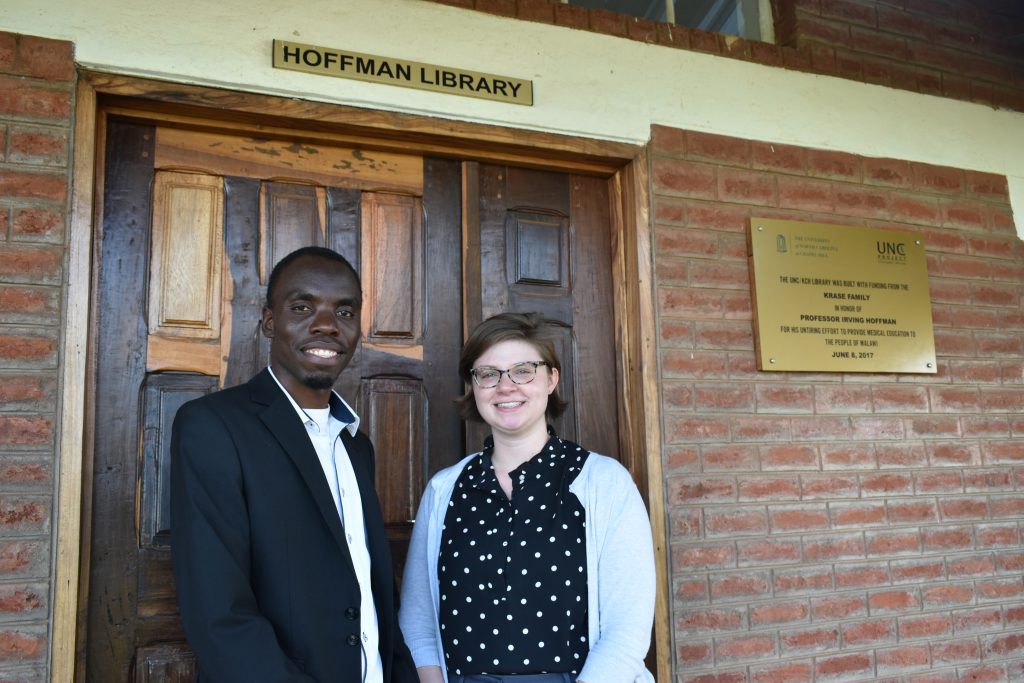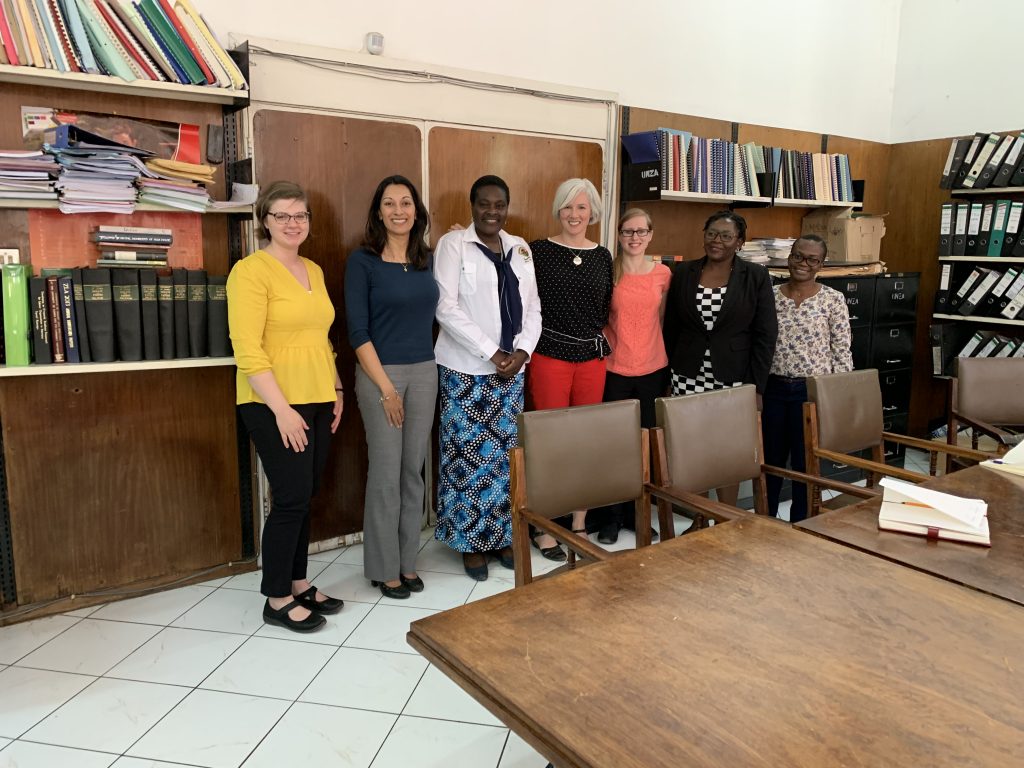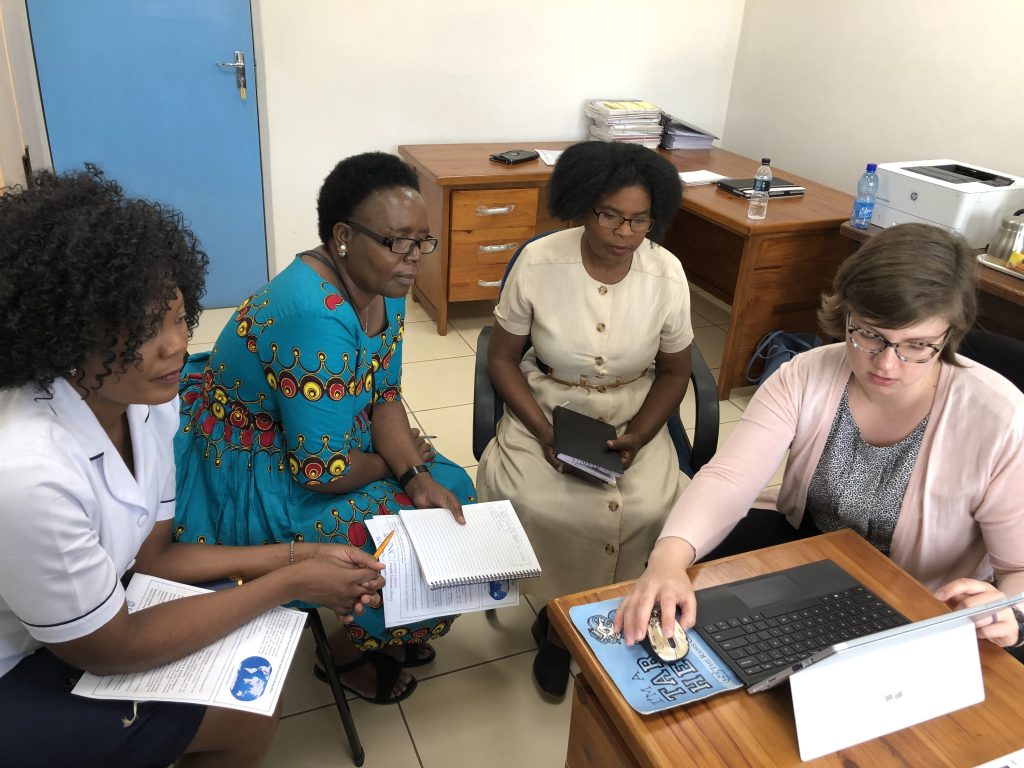Building capacity through collaboration
By Courtney J. Mitchell, ’01
One thing that drew Nandita Mani, PhD, from the University of Michigan in 2016 to lead UNC-Chapel Hill’s Health Sciences Library was Carolina’s deep commitment to collaborations around the world.
The University’s global health initiatives have advanced scholarship and improved health outcomes for the world’s most vulnerable populations. Mani knew right away that she and her staff needed to be part of those efforts.
On campus, the Health Sciences Library is the primary library for the schools of dentistry, medicine, nursing, pharmacy and public health, plus the UNC Medical Center. HSL also provides library services for the North Carolina Area Health Education Centers, regional centers that support clinical education and health services across the state.
“I arrived at a pivotal moment for Carolina,” says Mani. “There was a drive to increase engagement globally and build stronger ties linking global initiatives to local opportunities and vice versa. Addressing and contributing to global health is very close to my heart, so I started to reach out to key leaders who have put roots into these programs.”
One of Mani’s early connections on campus was Irving Hoffman, PA, MPH, professor of medicine in the division of infectious diseases and the U.S. director of UNC Project-Malawi. Project Malawi is a collaboration between the University and Malawi’s Ministry of Health to explore innovative, culturally acceptable and affordable ways to improve the health of Malawians.

Megan Fratta and UNC Project Malawi Librarian Wongani Jumbo outside of the Irving Hoffman Library in Malawi.
Mani wanted to understand what the School of Medicine had been able to achieve there and how HSL could play a role, both remotely and in-country. The fact that the chancellor named UNC Project-Malawi’s library in Lilongwe for Hoffman in 2017 deepened the drive to build a robust information partnership.
“It got me thinking about how we could be part of this story for Carolina. The hard part is that I had never been there to truly understand all the projects taking place, how people are working, and within what kind of technological infrastructure. Without being immersed in the culture, it’s hard to know how to partner in an effective way,” says Mani.
That is why, on a morning in late March, Mani and three of her staff members, boarded a plane and set out on the 24-hour trip to southeastern Africa. Traveling with her were Megan Fratta, community outreach and global health librarian; Rebecca Carlson, librarian to the Eshelman School of Pharmacy; and Michelle Cawley, head of clinical, academic and research engagement at HSL.
In addition to Malawi, the team’s itinerary included neighboring Zambia, where the division of global women’s health at the UNC School of Medicine is involved with research and clinical women’s health practices.

HSL team with University Librarian, Christine Kanyengo, Deputy Librarian, Francina Makondo, and Chileshe Kasonde from Global Projects Zambia.
“We were going to need to see it for ourselves to really understand it,” says Fratta. “How are their research teams set up? Where is the library located, and does it get a lot of traffic? We didn’t know what services we could provide, or how, until we had an understanding of how they worked.”
Because Carlson had been HSL’s liaison to the departments of surgery and obstetrics and gynecology, which have a presence in Malawi and Zambia, she already had a sense of the clinical needs that practitioners might face.
“When we met with the physicians in Malawi, we found they could use help with information seeking, instruction and clinical research. And, they were interested in what we do for doctors here in Chapel Hill,” says Carlson. “We quickly identified ways to give them the same help, like setting up search alerts in their areas of practice, assisting with systematic reviews, or connecting them with other faculty working on similar issues.”
Librarians everywhere have moved beyond conventional models of sitting behind desks and are accustomed to delivering services at a distance, says Cawley. One goal of visiting the countries personally was to reassure researchers and providers that the resources and capabilities of the HSL are not only vast, but are also accessible to them, even thousands of miles away. The conversations, she recalls, were often punctuated by “You can do that?!”
The visiting team found that clinicians and researchers in Africa have need for the same information services that the HSL provides in Chapel Hill and around North Carolina.

Megan Fratta shows nurses from UNC Project Malawi some of the resources available on HSL’s Global Health LibGuide in Malawi.
“Librarians have expertise in measuring, depicting and communicating the impact of research,” says Cawley. “We can help researchers get local research out into the public. We can help their libraries teach health literacy in their communities and make that information understandable to lay people. Librarians are often asked to translate scientific abstracts into language that anyone can understand, and we can help other librarians build those skills.”
The team came away with numerous ideas to advance collaborations in Malawi. By sharing academic information and publications through established channels, Carolina’s librarians can expand access to knowledge. Strengthening relationships with the resident librarians will have benefits for all involved. And as UNC’s School of Nursing works on a project to enhance oncology nursing at UNC Project–Malawi, the HSL can support research that Malawian nurses will undertake.
Mani says libraries are essential to every part of a University enterprise, whether close to home or an ocean away. She envisions ongoing partnerships with UNC-Chapel Hill’s global partners in health affairs as an enduring extension of the HSL’s role at Carolina.
“Our visit truly reiterated the value of interdisciplinary collaboration and teamwork. It’s because of that collaboration that we’re able to visualize a sustainable way of further engaging with Carolina’s global programs,” she says. “We can leverage the expertise of the library to increase knowledge, efficiency and effectiveness, and we can also be part of building capacity on the ground. When we do that alongside our peers, we all become stronger.”


